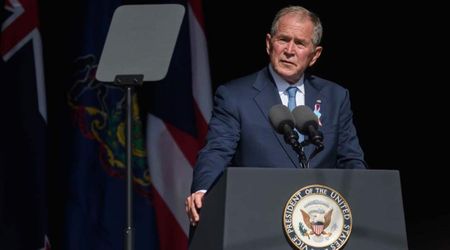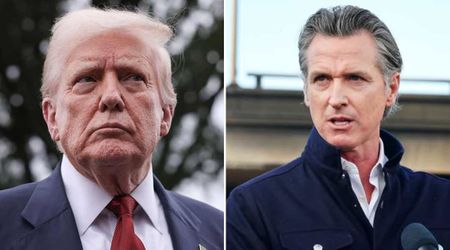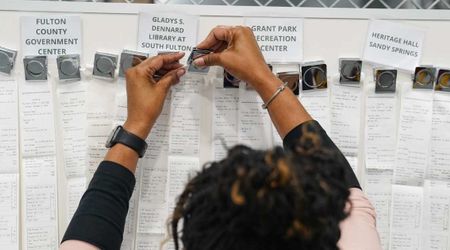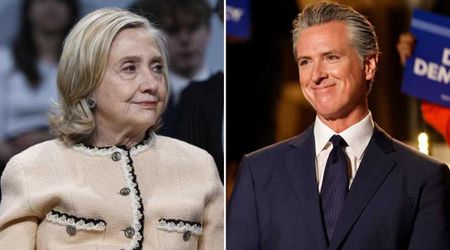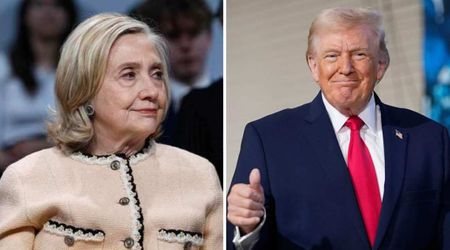Here's why 14th Amendment lawsuits seeking to bar former POTUS Donald Trump from 2024 ballots are failing
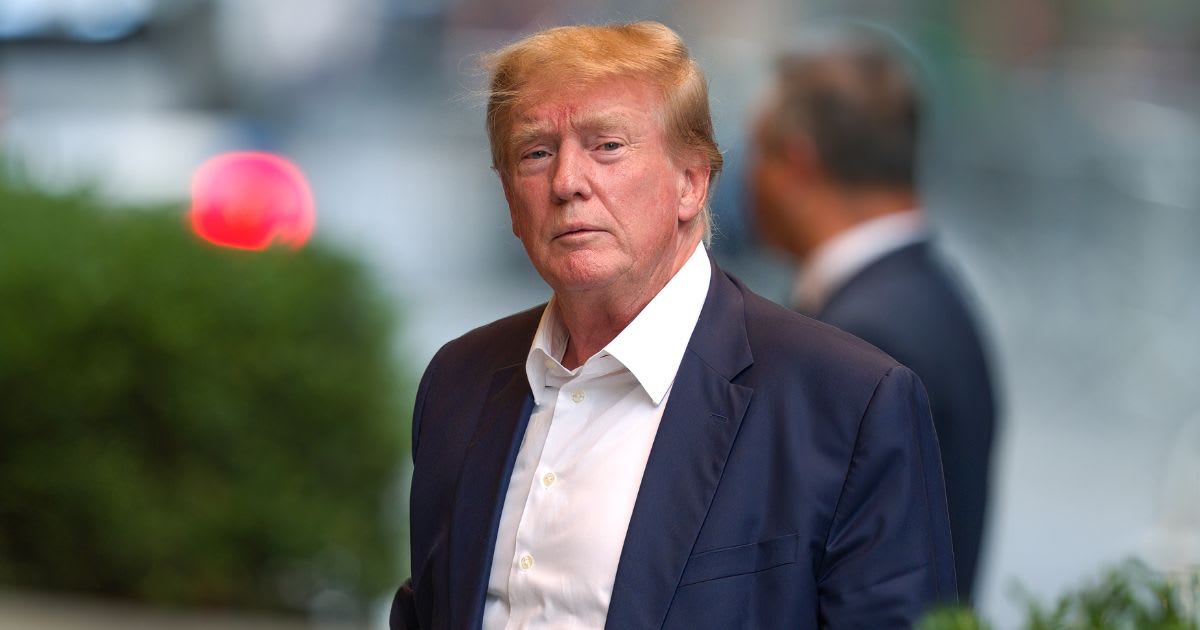
WASHINGTON, DC: Legal challenges aiming to prevent former President Donald Trump from appearing on the 2024 ballots under Section 3 of the 14th Amendment are consistently being dismissed in courts across the country.
In over a dozen states, petitioners argue that Trump, the leading candidate for the Republican Party's presidential nomination, should be disqualified due to his actions related to the January 6, 2021, attack on the US Capitol and efforts to overturn the 2020 election results.
They contend that these actions reportedly violate a constitutional clause prohibiting individuals from holding federal or state office if they previously held office, took an oath to the Constitution, and then engaged in "insurrection or rebellion" against the United States.
More than seven challenges, notably in Colorado, Michigan, and Minnesota, have reportedly failed, citing court rulings addressing procedural inconsistencies, questions about the judiciary's authority to enforce the ban, and disputes over whether the president is considered an "officer of the United States" as required by Section 3 of the 14th Amendment.
None of the challenges has been successful thus far.
Legal scholars navigate challenges in applying 'insurrectionist ban' to Donald Trump's election eligibility

Legal experts informed ABC News that the application of the "insurrectionist ban," a rarely invoked constitutional provision established after the Civil War to prevent former Confederate rebels from holding government positions, presents a formidable challenge in disqualifying a candidate from the ballot.
There are lingering uncertainties, including whether Section 3 is deemed "self-executing," eliminating the need for special permission to disqualify a candidate like Trump, and the precise interpretation of the "officer" language within the provision.
The lawyers interviewed by ABC News also emphasized the complexities arising from varying timelines in individual states' primary ballot certification processes, posing a significant hurdle to disqualifying Trump under this clause.
Mark Graber, a constitutional scholar and law professor at the University of Maryland, suggested that legal challenges might be dismissed not necessarily because they lack merit but due to procedural issues, such as timing or the authority of the official filing the lawsuit.
Graber, who submitted an amicus brief supporting those challenging Trump's eligibility, noted the possibility that courts may refrain from intervening based on an "anti-democratic" argument.
Josh Blackman, a conservative law professor, highlighted the reluctance of judges to take on such a contentious matter, stating, "Who wants to be the judge that disqualifies the leading presidential candidate on the Republican ticket? I mean, who wants to be that judge?" as per ABC News.
Blackman, who authored a widely cited paper supporting the argument that Section 3's reference to "an officer of the United States" excludes the president, reportedly submitted an amicus brief in favor of Trump before the Colorado Supreme Court.
In essence, the legal landscape surrounding the insurrectionist ban involves intricate constitutional questions, procedural challenges, and concerns about judicial interference in the democratic process, making the path to disqualify a candidate from the ballot a complex and nuanced undertaking.
Colorado Supreme Court hears appeal on Donald Trump's ballot eligibility amid insurrection allegations

On Wednesday, December 6, the Supreme Court of Colorado heard oral arguments in an appeal of a lower court judge's ruling rejecting a challenge to Trump's ballot eligibility in that state.
In September, Citizens for Responsibility and Ethics (CREW), a Washington, DC-based watchdog group, reportedly filed a lawsuit on behalf of six Republican and unaffiliated voters seeking to bar Trump from the primary ballot under the amendment's disqualification clause.
Denver District Court Judge Sarah B Wallace ruled against the group, deciding on November 17 that Trump should appear on the state's Republican primary ballot while at the same time finding that he engaged in an insurrection on January 6.
Wallace reportedly cited "competing interpretations" of the constitutional clause but rejected the challenge based solely upon the fact that a president was not considered an "officer" of the United States" because a president's oath to "preserve, protect, and defend the Constitution" is not an oath to "support" the Constitution as required by Section 3.
"The Court is persuaded that 'officers of the United States' did not include the President of the United States," Wallace wrote as per ABC News.
She added, "It appears to the Court that for whatever reason the drafters of Section 3 did not intend to include a person who had only taken the Presidential Oath."
Most of her 102-page opinion, however, affirmed the petitioners' claims that Trump had allegedly incited and engaged in insurrection and upheld some other of their arguments in favor of disqualification.
Challenges based on 14th Amendment dismissed in multiple states

Several challenges based on the 14th Amendment have encountered dismissals, with procedural and logistical reasons cited.
The Minnesota Supreme Court rejected a case, stating, "there is no error to correct" in the current stage of the primary election process.
The court reportedly clarified that no state statute prevents a major political party from supporting a candidate deemed ineligible in the presidential nomination primary.
The court, however, did not bar challengers from "bringing a petition raising their claims" concerning the general election.
Similarly, a Washington state district court judge reportedly dismissed a lawsuit on procedural grounds, emphasizing uncertainty about Trump's listing in the March 12, 2024, GOP primary ballot, as it was not yet certified.
Dismissals also reportedly occurred in challenges brought by Republican write-in candidate John Anthony Castro, who pursued similar suits in numerous states.
A US district court in Arizona dismissed one of Castro's challenges, citing a lack of subject-matter jurisdiction and arguing that Castro was "not genuinely competing with Trump for votes or contributions," as per the outlet.
In Rhode Island, a federal district court also dismissed a lawsuit challenging Trump's eligibility filed by Castro, upholding a previous decision from a US district court in New Hampshire that rejected one of Castro's lawsuits.
Donald Trump's election eligibility brings role of Congress vs judicial system into question
In November, the Michigan Court of Claims reportedly dismissed 14th Amendment lawsuits against Trump, with Judge James Robert Redford asserting that the responsibility for determining Trump's eligibility rested with Congress, not the judicial branch.
Judge Redford further ruled that, according to state law, he lacked the authority to compel election officials to assess Trump's eligibility under the 14th Amendment.
Reflecting on such cases involving contentious issues, Graber commented, "What we often see with certain hot-button issues, institutions are just as happy to have someone make a tough decision," as per the outlet.
He added, "To some degree, I think there's a case that everybody hopes somebody else will disqualify Donald Trump."



